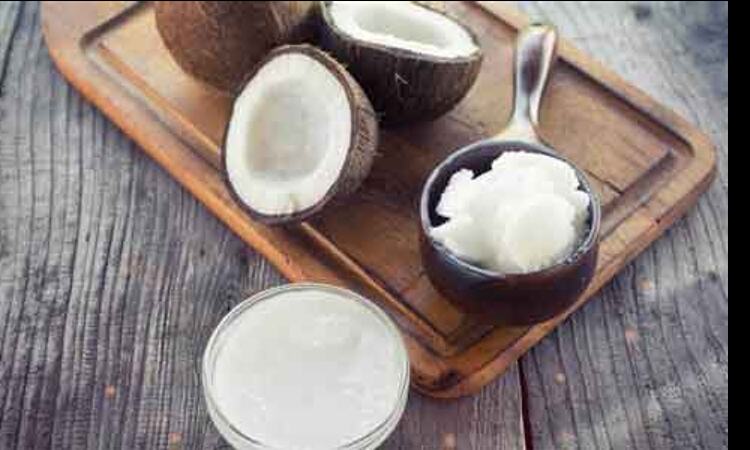- Home
- Medical news & Guidelines
- Anesthesiology
- Cardiology and CTVS
- Critical Care
- Dentistry
- Dermatology
- Diabetes and Endocrinology
- ENT
- Gastroenterology
- Medicine
- Nephrology
- Neurology
- Obstretics-Gynaecology
- Oncology
- Ophthalmology
- Orthopaedics
- Pediatrics-Neonatology
- Psychiatry
- Pulmonology
- Radiology
- Surgery
- Urology
- Laboratory Medicine
- Diet
- Nursing
- Paramedical
- Physiotherapy
- Health news
- Fact Check
- Bone Health Fact Check
- Brain Health Fact Check
- Cancer Related Fact Check
- Child Care Fact Check
- Dental and oral health fact check
- Diabetes and metabolic health fact check
- Diet and Nutrition Fact Check
- Eye and ENT Care Fact Check
- Fitness fact check
- Gut health fact check
- Heart health fact check
- Kidney health fact check
- Medical education fact check
- Men's health fact check
- Respiratory fact check
- Skin and hair care fact check
- Vaccine and Immunization fact check
- Women's health fact check
- AYUSH
- State News
- Andaman and Nicobar Islands
- Andhra Pradesh
- Arunachal Pradesh
- Assam
- Bihar
- Chandigarh
- Chattisgarh
- Dadra and Nagar Haveli
- Daman and Diu
- Delhi
- Goa
- Gujarat
- Haryana
- Himachal Pradesh
- Jammu & Kashmir
- Jharkhand
- Karnataka
- Kerala
- Ladakh
- Lakshadweep
- Madhya Pradesh
- Maharashtra
- Manipur
- Meghalaya
- Mizoram
- Nagaland
- Odisha
- Puducherry
- Punjab
- Rajasthan
- Sikkim
- Tamil Nadu
- Telangana
- Tripura
- Uttar Pradesh
- Uttrakhand
- West Bengal
- Medical Education
- Industry
Coconut Oil- A Novel Approach to Managing Radiation-Induced Xerostomia

According to recent research, it has been found out that the use of coconut oil as a treatment strategy for xerostomia post- head and neck cancer (HNC) radiation is feasible, inexpensive, and safe, as published in the International Journal of Otolaryngology.
With cancer of the head and neck being the sixth most commonly diagnosed cancer worldwide, the burden of xerostomia on both patients' quality of life and the healthcare system should not be underestimated. Xerostomia is a common complication following radiation therapy for head and neck cancer (HNC), for which there is no single, universally accepted therapy.
Coconut oil has been anecdotally suggested to provide relief for this complication. The mechanism of xerostomia relief from coconut oil may be related to its ability to "coat" the mouth, forming a barrier to keep mucosal surfaces moist. Coconut oil has never been formally studied as a strategy for managing radiation-induced xerostomia.
Therefore, Alexandra E. Quimby and colleagues from the University of Ottawa, Department of Otolaryngology—Head & Neck Surgery, Ottawa, Ontario, Canada carried out this study to examine the feasibility and effectiveness of coconut oil as a therapy for radiation-induced xerostomia.
The researchers performed a feasibility study among 30 patients with xerostomia subsequent to radiation for HNC. Coconut oil samples were provided along with a protocol for use over a 2-week period and the option to continue if they found it beneficial. Patients were also instructed to keep diaries to document their patterns of use.
The Xerostomia-related Quality of Life Scale (XeQOLS) was administered at baseline and 3-month follow-up. Descriptive methods were used to summarize patterns of coconut oil use and paired t-tests were used to assess changes in XeQOLS scores over time.
The interesting findings in the study were as follows-
- The mean total duration of coconut oil use during the study period was 16 days (1–71).
- The average number of uses per day was 3 (1–5), with an average amount per use of 5 mL (1.2–8.5).
- Twelve patients (41.4%) continued coconut oil use beyond the advised period.
- There was no statistically significant difference in XeQOLS scores pre- and post-treatment.
- There were no adverse events during the study period.
Hence, the authors concluded that "xerostomia is a pervasive problem following irradiation for head and neck cancer, with wide-ranging effects on patients' overall health and quality of life. Coconut oil offers a feasible, inexpensive, and safe alternative to the currently available, imperfect therapies for xerostomia."
Dr. Nandita Mohan is a practicing pediatric dentist with more than 5 years of clinical work experience. Along with this, she is equally interested in keeping herself up to date about the latest developments in the field of medicine and dentistry which is the driving force for her to be in association with Medical Dialogues. She also has her name attached with many publications; both national and international. She has pursued her BDS from Rajiv Gandhi University of Health Sciences, Bangalore and later went to enter her dream specialty (MDS) in the Department of Pedodontics and Preventive Dentistry from Pt. B.D. Sharma University of Health Sciences. Through all the years of experience, her core interest in learning something new has never stopped. She can be contacted at editorial@medicaldialogues.in. Contact no. 011-43720751
Dr Kamal Kant Kohli-MBBS, DTCD- a chest specialist with more than 30 years of practice and a flair for writing clinical articles, Dr Kamal Kant Kohli joined Medical Dialogues as a Chief Editor of Medical News. Besides writing articles, as an editor, he proofreads and verifies all the medical content published on Medical Dialogues including those coming from journals, studies,medical conferences,guidelines etc. Email: drkohli@medicaldialogues.in. Contact no. 011-43720751


